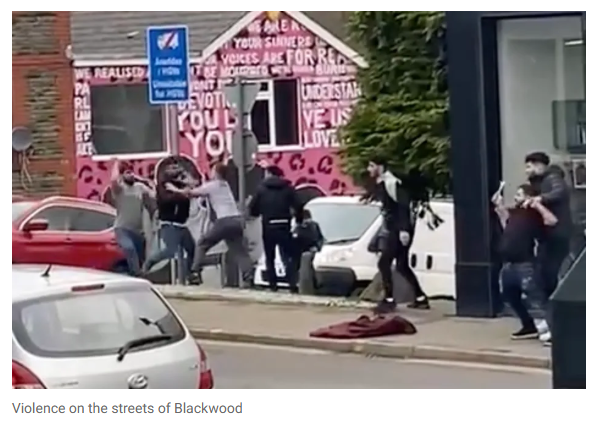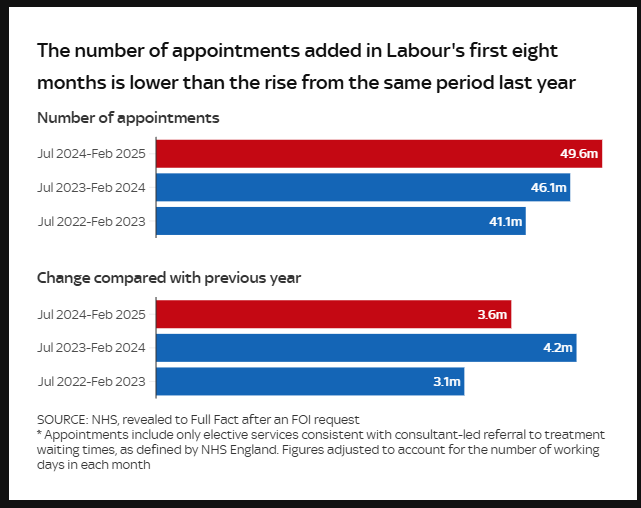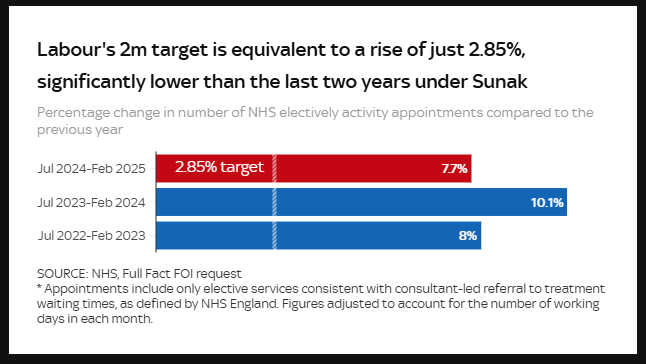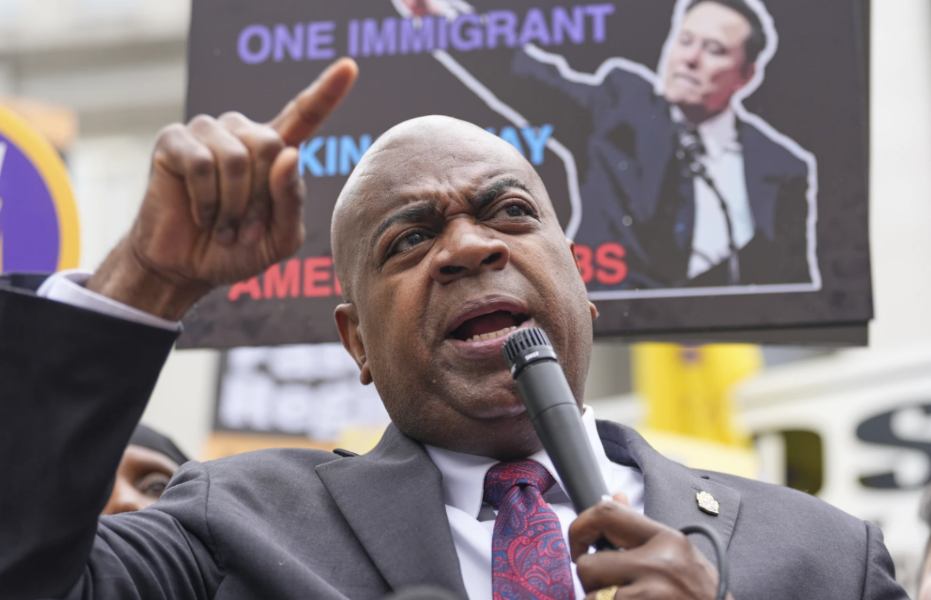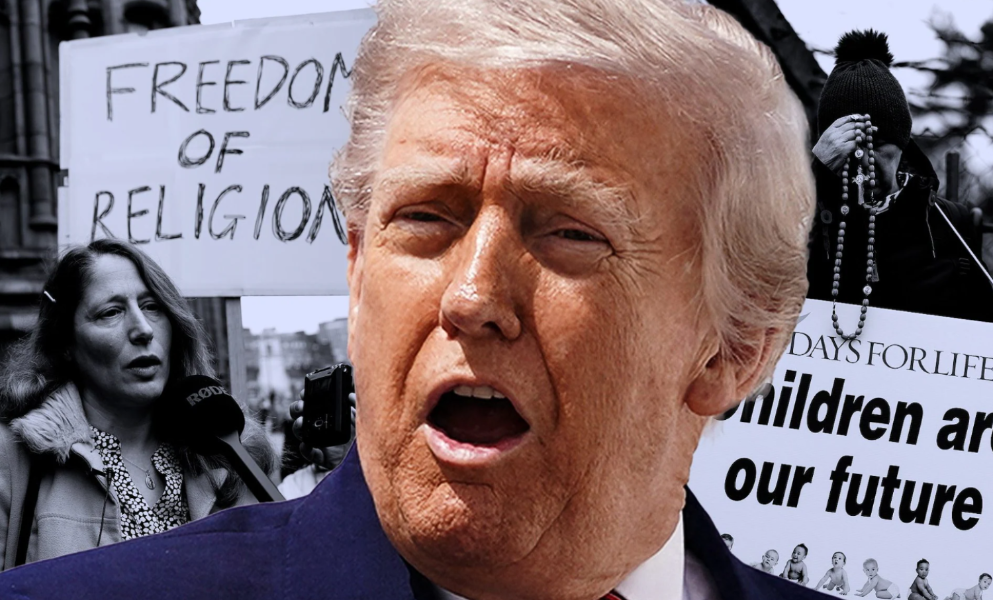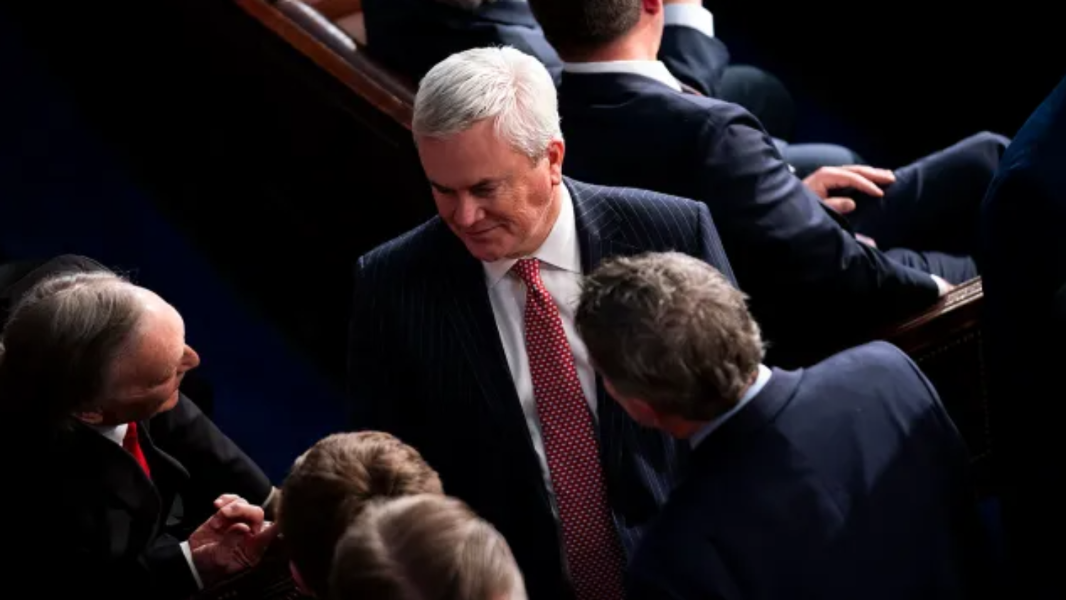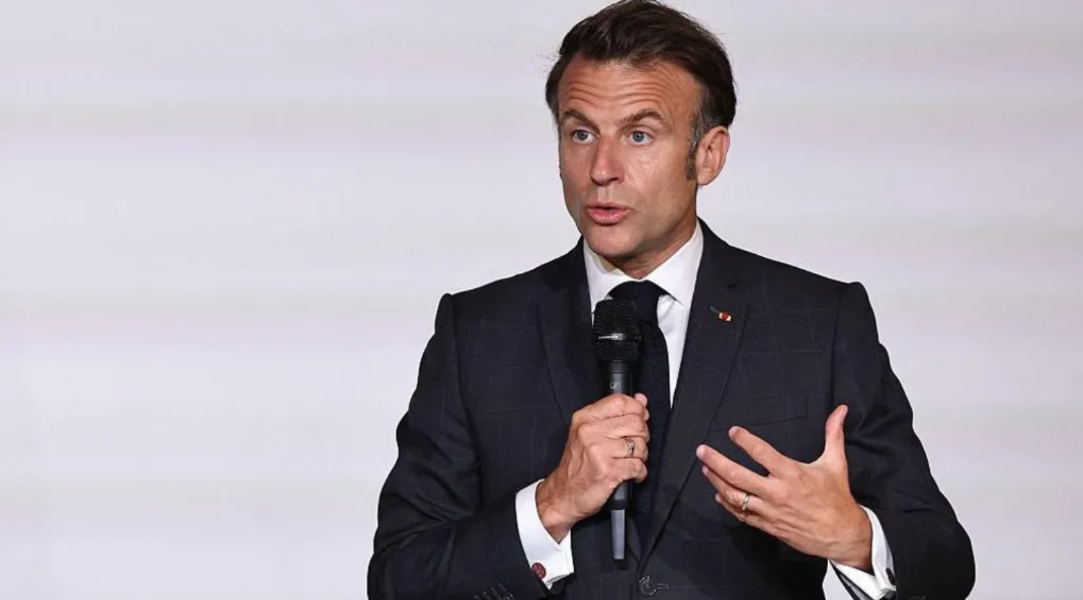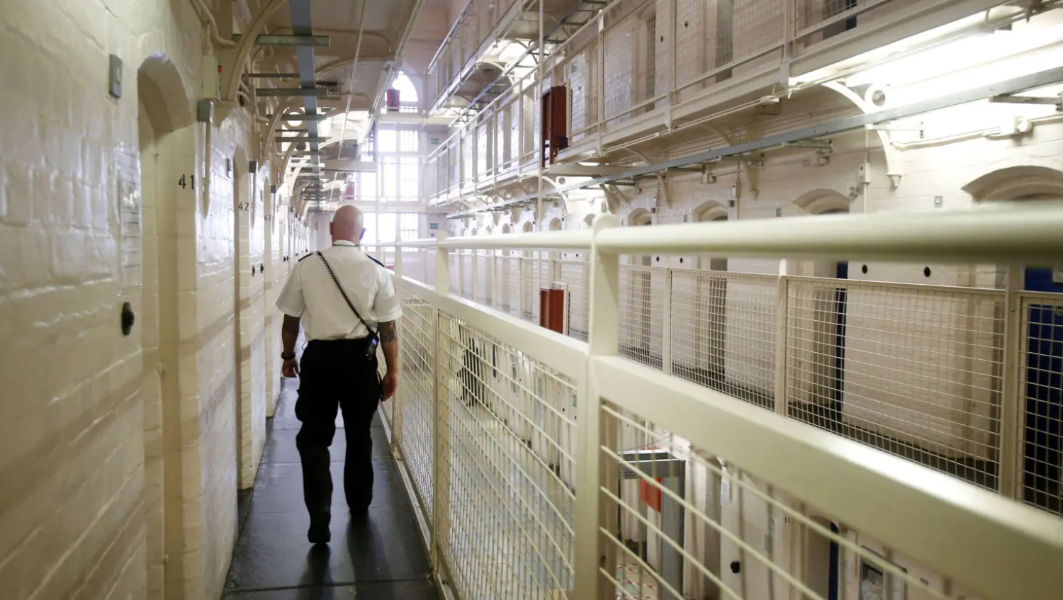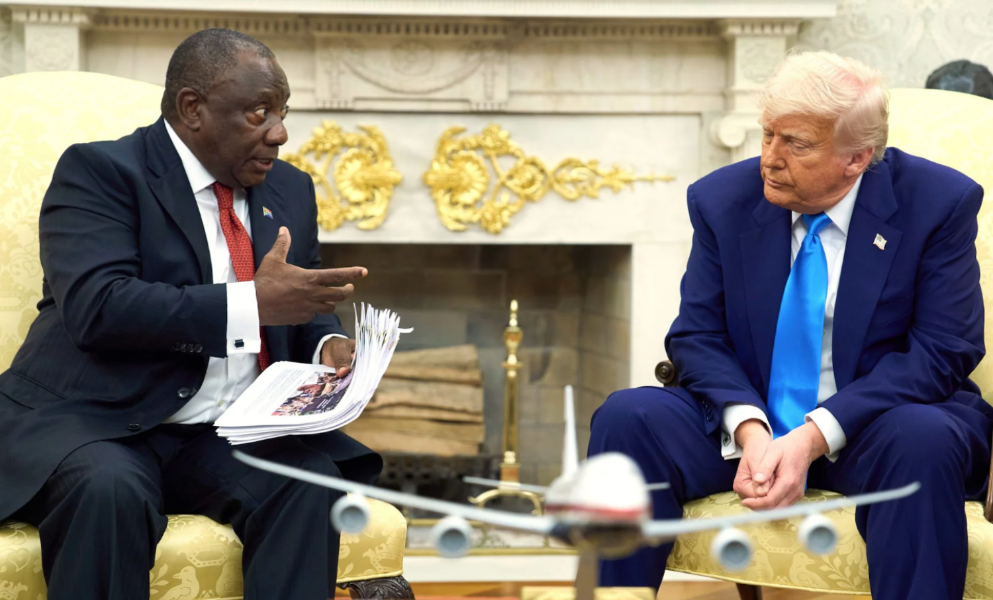-
Posts
10,807 -
Joined
-
Last visited
Content Type
Events
Forums
Downloads
Quizzes
Gallery
Blogs
Everything posted by Social Media
-
Barbershop Boom and Bust: The Unlikely Transformation of a Welsh High Street In the quiet former mining town of Porth, nestled among the hills of south Wales, a curious phenomenon is unfolding. Despite economic decline and widespread shop closures, the town’s high street is bristling with barbershops—14 of them, to be exact. Many are Turkish or Kurdish-owned, part of a national surge in similar salons. But as more appear, so too do concerns from locals who fear the high street’s identity is being clipped away, one beard trim at a time. Bijar Adam, a 30-year-old Kurdish barber, runs Yusif’s, one of the town's many grooming spots. “There’s just been more and more barbers opening. In the past three or four years we’ve had so many, it’s terrible,” he says. Adam, who came from Iraq a decade ago to visit his sister in Cardiff, took over the lease for his Porth salon seven years ago. Since then, he’s seen a flood of similar businesses appear, leading him to send a desperate email to local officials pleading for no new licences. “To no avail,” he says. Indeed, despite resistance from locals, the council recently approved another barbershop—Porth’s 14th—set to open in a disused amusement arcade on Hannah Street. Of the 19 shuttered shops lining the street, few remain open: a butcher, a jeweller, and a dog groomer cling on amid fading bunting and plastic flower displays. For longtime residents like Jackie Abberfield, who’s worked on Hannah Street since 1987, the contrast to the town’s former vibrancy is stark. “Back in the Eighties, we had six butchers, six shoe shops, three men’s shops and so many beautiful Italian restaurants,” she recalls. The rise in barbers isn’t unique to Porth. Nationally, barbershop numbers have surged by 50 percent since 2018, with over 18,000 now operating in the UK. While many are simply trying to earn a living, their proliferation has caught the attention of authorities. The National Crime Agency (NCA) confirmed in March that it had launched raids across the UK over concerns that some Turkish-style barbershops are being used for money laundering and other criminal activity. “Growing intelligence” suggested the cash-only model of many of these businesses makes them ripe for exploitation. Adam, however, is quick to clarify that his business takes card payments—my £10 beard trim included—and operates above board. Still, he is tired of the saturation. “I’m giving it up,” he says. “I want to get a decent job with the government. Let the next barber come along and make me an offer.” Nearby in Blackwood, another Welsh town double the size of Porth, six Turkish-style barbers dot the high street. Tensions boiled over there in February when a violent street fight outside one salon resulted in eight defendants facing charges. “Police shut down the whole street,” says John Williams, a 57-year-old unemployed decorator. “I blame the council. They let people come in here and do up these rundown shops.” The answer may be economic desperation. A property agent in south Wales said many landlords are tempted by barbers offering “big money” well over asking price. “On a recent viewing in Cardiff, 15 of the 20 interested were Turkish-style barbers,” the agent said. “And they all knew each other, like they were cousins, brothers or whatever.” Behind the barbershop boom lies a much bleaker picture: economic stagnation. In towns like Porth, the decline began long before online shopping. After the coalmines shut in the 1980s, jobs vanished. A 2024 study by Sheffield Hallam University found only 46 jobs for every 100 working-age residents in south Wales, compared to the national average of 75. Paul Evans, a retired teacher, sits in the Old Library café eating cawl stew and reminisces about the vanished businesses—an electronics factory, a dairy, an industrial bakery. “They’ve all gone,” he says. “There’s a joke around here: what’s the difference between Porth and yoghurt? Yoghurt has a living culture.” As for Adam, he’s already studying IT and plans to leave the scissors behind. The barbershop boom might be offering some short-term economic balm to landlords, but for many locals, it's a symbol of a town that’s lost its way. Related Topic: UK Turkish Barber Shops: How Criminal Gangs Use Them to Launder Money Adapted by ASEAN Now from The Times 2025-05-27
-

Dyer: Israel's deadly strategy to clear Gaza will make it pariah
Social Media replied to bannork's topic in The War in Israel
//closed// @bannork 5. You will not use ASEAN NOW to post any material which is knowingly or can be reasonably construed as false, inaccurate, invasive of a person's privacy, or otherwise in violation of any law. Topics or posts deemed to be scaremongering, deliberately misleading or which deliberately distort information will be removed. In factual areas such as news forums and current affairs topics member content that is claimed or portrayed as a fact should be supported by a link to a relevant reputable source. 27. You will not post any copyrighted material except as fair use laws apply (as in the case of news articles). Only post a link, the headline and three sentences from the article. Content in the public domain is limited to the same restrictions. -
Trump Condemns Putin After Russia Launches Deadly Airstrikes Across Ukraine U.S. President Donald Trump delivered a sharp rebuke of Russian President Vladimir Putin following the most intense aerial assault since the beginning of the war in Ukraine. On Sunday night, waves of drones and missiles rained down on several Ukrainian cities, including Kyiv, Odesa, and Mykolaiv, killing 12 civilians, three of them children, and injuring dozens more. Speaking to reporters at an airport in New Jersey before returning to Washington, Trump appeared visibly disturbed by the scale and brutality of the attacks. “I’m not happy with Putin. I don’t know what’s wrong with him,” he said. “He’s killing a lot of people. I’m not happy about that.” The strikes, which Ukrainian officials described as the largest aerial attack of the war, involved 367 projectiles launched by Russian forces overnight. Despite these aggressive moves, Trump had recently been optimistic about the possibility of brokering peace, even holding a two-hour phone call with Putin just last week. The president had previously maintained that he had always "gotten along with" Putin, but his tone shifted significantly in light of recent events. “He’s sending rockets into cities and killing people, and I don’t like it at all,” Trump said, while also hinting at the possibility of imposing further sanctions on Moscow. Ukrainian President Volodymyr Zelenskyy responded to the bombardment by reiterating his willingness to negotiate a ceasefire, while casting doubt on Russia’s sincerity in pursuing peace. In a public statement, he appealed to the United States and other global powers to ramp up pressure on the Kremlin. “Silence only encourages him,” Zelenskyy warned, in reference to Putin. Keith Kellogg, Trump’s envoy to Ukraine, also weighed in on the developments, calling the Russian strikes “shameful” and demanding an immediate ceasefire. The attacks followed Russia’s claims that it had been targeted by a major Ukrainian drone assault on Sunday, with officials saying they had intercepted around 100 drones over Moscow and other parts of central and southern Russia. This escalation comes despite a significant diplomatic breakthrough earlier in the week, when both Russia and Ukraine completed a prisoner exchange involving 1,000 captives on each side. The intensification of violence has cast a shadow over ongoing efforts to bring the conflict to an end. With cities shaken and civilians caught in the crossfire, Trump’s uncharacteristically harsh criticism of Putin marks a notable shift in his rhetoric—and adds new weight to international calls for Russia to halt its deadly campaign. Adapted by ASEAN Now from Sky News 2025-05-26
-
Government Set to Scrap Special-Needs Support Plans, Prompting Widespread Alarm Plans under consideration by the UK government to eliminate key legal protections for children with special educational needs have sparked strong warnings from campaigners, who fear that hundreds of thousands of young people may be left without the vital help they need. Ministers are reportedly preparing to overhaul the Education, Health and Care Plans (EHCPs), which currently guarantee tailored support for children with disabilities in schools. EHCPs, previously known as statements, are legally binding documents issued by local councils to ensure that children with diagnosed special needs receive individualized assistance, often including one-on-one sessions with specialists. However, with more than 570,000 children currently holding an EHCP, including 185,000 in special schools, ministers believe the rising numbers are financially unsustainable. A government source said the reforms aim to restrict EHCP access to those with the “very high and complex needs,” suggesting that children with less severe conditions may no longer qualify for the legal protections these plans provide. The special educational needs budget currently stands at £11 billion and is projected to rise by another £2 billion within two years. Much of the growth in EHCP issuance has been linked to an increase in diagnoses of autism spectrum disorder, ADHD and other social, emotional, and mental health needs, as well as speech, language, and communication disorders. Among those most likely to be affected are the 78,000 children whose plans are primarily due to speech and language issues. “For the people who just need speech and language therapists, they won’t need the EHCPs because we’ll have that provided in schools,” the source added. Parents and education experts are increasingly concerned that the EHCP system may be scrapped altogether. Dame Christine Lenehan, the government’s strategic adviser on SEND (special education needs and disabilities), told Schools Week that the existing framework is “not fit for purpose” and predicted a significant overhaul. While mainstream schools are expected to receive increased funding to help bridge the gap left by reduced access to EHCPs, experts warn that such a shift may lead to severe consequences without proper resources. The upcoming reforms, expected to be introduced via a parliamentary bill, are likely to be framed as a solution to a broken system plagued by bureaucratic hurdles and long delays. Currently, only half of families receive their EHCPs within the statutory 20-week deadline. Tens of thousands of children are left waiting for support, despite the high cost associated with delays. A place in a state special school costs £25,000 annually per child, compared with £8,200 for a place in a mainstream state school. A recent report by the public accounts committee revealed that over 40,000 children were waiting longer than 12 weeks for speech and language therapy as of June 2024. The committee concluded that slow access to specialist healthcare is a “significant barrier in a struggling system.” In response, the government has announced a £3.4 million initiative to send specialist teams into primary and early-years settings, aiming to help 20,000 more children overcome speech and language difficulties. Officials hope these interventions will allow many children to forgo EHCPs altogether. However, experts warn that without sufficient investment and staffing, the reforms may do more harm than good. Jane Harris, chief executive of Speech and Language UK, said: “Children with speech and language challenges are in every classroom and many need adapted teaching throughout the school day. While we would welcome every school having access to a speech and language therapist — how would the huge number required be recruited and trained to work with the hundreds of thousands of children who need support? So we need to know how the government plans to truly help these children.” Anna Bird, chief executive of the charity Contact, called the move to eliminate EHCPs “nonsensical,” warning it could strip vulnerable children of essential support. “The government is moving away from more than 40 years of consensus about the need for legal guarantees to ensure disabled children can take part in school life,” Bird said. “This will be devastating news for parents.” Pepe Di’Iasio, general secretary of the Association of School and College Leaders, echoed these concerns, stating, “Any new system must be backed with sufficient funding — rather than the current position which leaves schools struggling to provide support without the resources they require.” A spokesperson for the Department for Education said: “This government is actively working with parents and experts on the solutions, including more early intervention to prevent needs from escalating and £740 million to encourage councils to create more specialist places in mainstream schools. Any changes we make will improve support for children and parents, stop parents from having to fight for support, and protect provision currently in place.” Adapted by ASEAN Now from The Times 2025-05-26
-
Neo-Nazi Cult Leader Extradited to U.S. Over Alleged Plot Targeting Jewish Children in New York A 21-year-old Georgian man accused of plotting a horrific mass poisoning attack targeting Jewish children and racial minorities in New York City has been extradited from Moldova to the United States, where he now faces federal charges. Michail Chkhikvishvili, alleged leader of an international neo-Nazi group known as the Maniac Murder Cult, appeared in a Brooklyn federal court on Friday and pleaded not guilty to multiple felony charges, including the solicitation of hate crimes and attempted mass violence. According to federal prosecutors, Chkhikvishvili—who also used the alias “Commander Butcher”—allegedly instructed an undercover FBI agent to dress as Santa Claus and distribute poisoned candy to Jewish children and minorities, specifically targeting schools in Brooklyn. The plan, officials say, was part of a broader campaign of hate-fueled violence promoted by his extremist group, which embraces a neo-Nazi accelerationist ideology that encourages terrorism against those it deems “undesirables.” Samuel Gregory, Chkhikvishvili’s attorney, asked the court to place his client under suicide watch and requested a psychiatric evaluation. Gregory did not immediately return calls for comment following the arraignment. Prosecutors detailed how the Maniac Murder Cult has used social media, including encrypted messaging apps like Telegram, to share violent propaganda and plans. The group is known for its manifesto, the “Hater’s Handbook,” which openly incites violence against Jews, racial minorities, and vulnerable communities. Authorities believe that the group’s rhetoric has influenced real-world violence, including a deadly school shooting in Nashville, Tennessee, earlier this year, where a 16-year-old student was killed. Court documents allege that since 2022, Chkhikvishvili made multiple visits to Brooklyn, during which he claimed to have assaulted an elderly Jewish man. He also reportedly used text messages to encourage other members of his group to commit violent acts. When approached by the undercover agent in 2023, Chkhikvishvili began outlining the plan to distribute poisoned candy, initially proposing a general attack on racial minorities and Jewish children before narrowing the focus to Jewish victims. “Dead Jewish kids,” he allegedly said, would be the most desirable outcome, noting that “Jews are literally everywhere” in Brooklyn. In addition to detailing his plans for mass casualties, Chkhikvishvili reportedly told the undercover agent that the United States offered “big potential because of accessibility to firearms.” He allegedly suggested that homeless individuals might also be viable targets, cynically claiming the government wouldn’t care “even if they die.” The suspect was arrested last July in Moldova and held there until his extradition earlier this week. His capture marks a major development in an ongoing investigation into the online networks and real-world activities of extremist hate groups operating transnationally. Attorney General Pam Bondi responded to the case with a stark warning about the evolving nature of domestic and international terrorism. “This case is a stark reminder of the kind of terrorism we face today: online networks plotting unspeakable acts of violence against children, families, and the Jewish community in pursuit of a depraved, extremist ideology,” Bondi said in a statement. The Justice Department continues to investigate the full extent of the Maniac Murder Cult’s operations and potential ties to other extremist acts worldwide. Meanwhile, Chkhikvishvili remains in federal custody as legal proceedings continue. Adapted by ASEAN Now from AP 2025-05-26
-
Labour’s NHS Appointment Claims Challenged by New Data and Public Sentiment Keir Starmer’s Labour government has hailed its early efforts to reduce NHS waiting times as a significant success, highlighting what it describes as a “massive increase” in appointments. However, newly obtained data suggests the reality may not be as impressive as ministers claim, and public opinion seems to echo that skepticism. Health Secretary Wes Streeting has repeatedly pointed to an increase of 3.6 million additional NHS appointments during Labour’s first eight months in power, exceeding the party’s original target of two million extra appointments within their first year. Yet the independent fact-checking charity Full Fact, in data shared exclusively with Sky News, found this increase actually marked a slowdown in NHS activity. During the same eight-month period under the previous Conservative government, the NHS recorded a larger increase of 4.2 million appointments. According to the Institute for Fiscal Studies (IFS), Labour's target itself was never particularly ambitious. The IFS noted the additional two million appointments represent less than a 3% increase compared to the 70 million carried out in the year to June 2024. In contrast, the final year of Rishi Sunak’s government saw a 10% rise, with the year before that seeing an 8% increase. Sarah Scobie, deputy director of the Nuffield Trust, called the two million target “very modest,” warning it “won’t come close to bringing the treatment waiting list back to pre-pandemic levels, or to meeting longer-term NHS targets.” Labour's manifesto pledge stated it would deliver “an extra two million NHS operations, scans, and appointments every year.” However, the government repeatedly failed to define how this would be measured. “We didn’t know how they were defining these appointments,” said Leo Benedictus of Full Fact. “When they said that there would be more of them, we didn’t know what there would be more of.” When Labour finally claimed the target had been met in February, they released a definition that excluded maternity and mental health services but included elective operations, outpatient appointments, and diagnostic tests. Even then, the increase was measured only by comparing a five-month snapshot from July to November 2024 with the same period in 2023, adjusted for working days. This left experts uncertain whether Labour’s claim represented new progress or simply a continuation—or even deceleration—of existing trends. To obtain the full context, Full Fact had to submit a Freedom of Information request. “We asked them for that information. They didn’t publish it. We didn’t have it,” Benedictus explained. “And when that came back about a month later, it was fascinating.” In response to the criticism, a spokesperson for the Department of Health and Social Care said: “On entering office last July, the secretary of state was advised that the fiscal black hole meant elective appointments would have to be cut by 20,000 every week. Instead, this government provided the extra investment and has already delivered 3.6 million additional appointments.” They also noted that more patients are now being seen within 18 weeks and that the waiting list has dropped by over 200,000 in nine months—over five times the reduction achieved during the same period the previous year. Former health secretary Jeremy Hunt expressed disappointment: “What these numbers seem to show is that the rate of appointments was going up by more in the last government than it is by this government. That’s really disappointing when you look at the crisis in the NHS.” Public sentiment reflects this disappointment. A YouGov poll for Sky News found that 39% of people think the NHS has worsened over the past year, with only 12% saying it has improved. Only 30% of respondents said they trust Keir Starmer on NHS issues, though this still compares favorably to Nigel Farage (21%) and Kemi Badenoch (16%). Edward Argar, the Conservative shadow health secretary, dismissed Labour’s claims as a “weak attempt […] to claim credit for something that was already happening.” Despite some signs of progress, such as a decline in those waiting over a year for treatment—from nearly 400,000 in August 2023 to 180,242 in the latest figures—the backlog remains historically high. More than 6.25 million people are currently waiting for a total of 7.42 million treatments, meaning over one in ten people in England are on the NHS waiting list. The government has committed to ensuring that no more than 8% of patients wait longer than 18 weeks by the next election. Currently, more than 40% are still waiting beyond that threshold. While the Labour government may have technically met its stated target, the broader context and pace of NHS recovery suggest much more needs to be done. Adapted by ASEAN Now from Sky News 2025-05-26
-
European Leaders Demand ECHR Reform to Regain Control Over Migration Policies A growing coalition of European leaders is calling for reforms to the European Court of Human Rights (ECHR), arguing that it is preventing nations from protecting their borders and effectively managing migration. Led by Italy and Denmark, a group of eight countries has issued an open letter demanding greater national autonomy in expelling criminal migrants and enforcing stricter asylum policies. The letter, also signed by Poland, Austria, Belgium, Estonia, Latvia, Lithuania, and the Czech Republic, expresses deep frustration with how the ECHR has interpreted the 1953 European Convention on Human Rights. It states, “We have seen cases concerning the expulsion of criminal foreign nationals, where the interpretation of the convention has resulted in the protection of the wrong people and posed too many limitations on the states’ ability to decide whom to expel from their territories.” At a joint press conference in Rome, Italian Prime Minister Giorgia Meloni and Danish Prime Minister Mette Frederiksen emphasized that their citizens are losing faith in the ability of governments to manage immigration. “We don’t have much time, in almost all European countries people believe the situation is out of control,” said Frederiksen. Meloni added that the time had come for a “courageous reflection” on the convention, stressing that it has led to scenarios “when the convention is applied and states are not allowed to protect citizens by expelling immigrants accused of serious crimes.” While the letter acknowledges the positive contributions of many migrants who have embraced European values and integrated into society, it also warns about the emergence of “parallel societies.” It states, “Others have come and chosen not to integrate, isolating themselves in parallel societies and distancing themselves from our fundamental values of equality, democracy and freedom.” The letter further argues that although the principles enshrined in the European Convention are timeless, the current scale of global migration requires new approaches. “The world has changed fundamentally since many of our ideas were conceived in the ashes of the great wars. The ideas themselves are universal and everlasting. However, we now live in a globalised world where people migrate across borders on a completely different scale. What was once right might not be the answer of tomorrow.” The European Court of Human Rights has recently been at the centre of several high-profile cases that have angered national governments. It has ruled against Latvia, Lithuania, and Poland over their treatment of migrants and has pressured Denmark to relax restrictions on family reunification for migrants. In Italy, a court blocked Meloni’s plan to create a migrant processing centre in Albania, a case that has now been referred to the European Court of Justice. In the UK, the ECHR prevented the first flight carrying asylum seekers to Rwanda as part of a controversial offshore asylum processing plan. In response to what they see as external interference in national migration policies, the signatories of the letter are calling for “more room” for national decision-making, particularly in light of what they describe as the “instrumentalisation” of migration by hostile states like Russia and Belarus. These countries have been accused of deliberately directing migrant flows toward EU borders as a form of geopolitical pressure. Poland, for example, suspended the right to claim asylum at parts of its border in response to a surge in migrant crossings. The letter concludes with a warning and a commitment: “We have to restore the right balance. And our countries will co-operate to further this ambition. Although our aim is to safeguard our democracies, we will likely be accused of the opposite.” This push comes as tighter controls across the continent have already led to a 38 per cent drop in irregular border crossings into the EU last year, with 239,000 cases detected, according to the EU’s border agency, Frontex. In a symbolic shift, Germany recently reversed the 2015 policy under Angela Merkel that allowed hundreds of thousands of asylum seekers into the country—a move widely seen as a catalyst for mass migration to Europe. Merkel, however, has defended her decisions, warning that unilateral actions by EU members could threaten the Schengen zone. “Otherwise Europe could be destroyed,” she said at a recent public event, calling instead for a unified strategy to secure the EU’s external borders. As the debate intensifies, the future role of the ECHR in shaping European migration policy hangs in the balance, with growing pressure from national governments to reclaim authority over who can stay—and who must go. Adapted by ASEAN Now from The Times 2025-05-26
-
Trump Administration Targets New Jersey Cities Over Immigration Stance In a move that intensified the national debate over immigration enforcement, the Trump administration filed a federal lawsuit against four New Jersey cities—Newark, Jersey City, Paterson, and Hoboken—accusing them of obstructing federal immigration efforts through their sanctuary policies. The Justice Department lodged the suit in New Jersey’s federal court, seeking a judgment that would prevent the municipalities from continuing what the administration characterizes as interference with federal authority. “While states and local governments are free to stand aside as the United States performs this important work, they cannot stand in the way,” the lawsuit declares, emphasizing that federal immigration enforcement cannot be impeded by local ordinances or policy decisions. This legal action represents another chapter in the Trump administration’s ongoing battle against so-called sanctuary cities. Prior to targeting these New Jersey locations, the administration had already taken legal action against cities such as Chicago, Denver, and Rochester, as well as the entire state of Colorado. While there is no single legal definition of a sanctuary city, the term is generally used to describe jurisdictions that limit their cooperation with federal immigration authorities, particularly Immigration and Customs Enforcement (ICE). ICE, which enforces immigration law nationwide, often seeks help from local agencies in civil immigration cases. Sanctuary policies, however, typically prohibit this cooperation unless ICE provides a judicial criminal warrant. These policies do not interfere with cooperation on criminal enforcement matters, but according to the lawsuit, the four New Jersey cities failed to notify ICE even when criminal arrests were made. In response, local leaders denounced the lawsuit and defended their policies. Newark Mayor Ras Baraka, who is a Democratic gubernatorial hopeful, dismissed the administration’s claims. “The lawsuit against Newark is absurd. We are not standing in the way of public safety,” Baraka said in an emailed statement. He argued that residents are more inclined to report crimes when they are not living in fear of deportation. Paterson Mayor Andre Sayegh expressed similar resolve. “We will not be intimidated,” he stated via text, describing the lawsuit as “an egregious attempt to score political points at Paterson’s expense.” Hoboken Mayor Ravi Bhalla also rejected the administration’s actions, reaffirming the city’s inclusive values. “The City of Hoboken will vigorously work to defend our rights, have our day in court, and defeat the Trump Administration’s lawlessness. To be clear: we will not back down,” he said in a statement. All four mayors are Democrats and have consistently supported immigrant-friendly policies. Their city-level directives align closely with a statewide order issued by New Jersey’s Attorney General in 2018. Known as the Immigrant Trust Directive, it restricts local police from assisting federal immigration authorities, underscoring a broader state commitment to limiting involvement in federal immigration enforcement. Although the 3rd Circuit Court of Appeals previously upheld the legality of New Jersey’s statewide directive, it remains uncertain how this decision might influence the federal government’s case against the individual cities. The outcome could set new legal precedents regarding the extent to which local governments can chart their own course on immigration policy within the bounds of federal law. Adapted by ASEAN Now from AP 2025-05-26
-
- 1
-

-
Satire on Trial: How a Three-Minute Placard Sparked an Eight-Month Legal Ordeal A Jewish counter-protester who dared to mock Hezbollah leader Hassan Nasrallah with a hand-drawn cartoon has finally been cleared, ending what he calls a “distressing” eight-month saga that exposed “two-tier policing in action”. The Londoner, who has asked to remain anonymous for safety reasons, spent fewer than three minutes on 20 September holding a sign that pictured Nasrallah clutching a pager above the words “beep, beep, beep” – a nod to Israel’s 1997 “Operation Grim Beeper”, in which explosives hidden in communications devices killed dozens of Hezbollah fighters. He was standing in Swiss Cottage alongside a multi-faith group protesting a larger pro-Palestinian march. Police did not arrest him that day, but when he returned to the same spot a week later two vans and six officers arrived. They searched his home – even, he says, rifling through his partner’s underwear drawer – then held him overnight at Islington police station and charged him under the Public Order Act with racially or religiously aggravated harassment. “It beggars belief that police could think this placard might offend supporters of Hezbollah,” he told The Telegraph. “If Hezbollah sympathisers were really present, why weren’t they facing terror charges instead of me?” Interview footage shows an officer pressing him: “Do you think that showing this image to persons protesting who are clearly pro-Hezbollah and anti-Israel would stir up racial hatred further than it is already?” His lawyer, Carl Woolf, replied incredulously, “Are you saying there were pro-Hezbollah people there? It is a proscribed terrorist organisation.” The incident fuelled accusations that the Metropolitan Police are harsher on pro-Israel speech than on overt support for extremist causes. Shadow home secretary Chris Philp called it “two-tier policing in action”, adding that officers “sometimes turn a blind eye when confronted with protesters calling for jihad, yet over-police at other times. The law should be applied equally to all – that is not what happened here.” Peers echoed the criticism. Lord Walney, a former government extremism adviser, said intervening “on the side of supporters of a proscribed terrorist organisation is grotesque” and urged the Met to apologise if the man’s account is upheld. Lord Austin, previously investigated for labelling Hamas “Islamists” online, remarked, “It beggars belief that someone would be arrested and charged because a sign might upset supporters of Islamist terrorists, rather than action being taken against the terror supporters themselves.” Confronted with the video, the Met later insisted the interviewing officer had “misspoke” by describing demonstrators as pro-Hezbollah when she meant pro-Palestinian, and promised to “reflect on the CPS decision” to drop the case. Prosecutors finally abandoned proceedings on 10 May, citing insufficient evidence for a realistic prospect of conviction. The counter-protester learned the news with relief: “I didn’t realise how relieved I was until I heard I wasn’t going to court.” His ordeal comes amid wider concern about anti-Semitic hate and police tactics since Hamas’s 7 October attacks. The same September afternoon, a pro-Palestinian activist was filmed near the Israeli ambassador’s home shouting “I love the 7th of October.” He was arrested under terrorism legislation but never charged; Scotland Yard says it is still contesting that decision with the Crown Prosecution Service. For the Jewish protester, the takeaway is grim: “The Met are still out of their depth policing the hate marches we’ve seen week in, week out. Political satire shouldn’t land you in a cell.” Yet, with the case closed, he hopes at least one lesson is clear: mocking a terrorist is not a crime in Britain. Adapted by ASEAN Now from The Telegraph 2025-05-26
-
The Dangerous Cost of Modern Misinformation: From Trump’s Claims to Anti-Israel Narratives In an era where information is more accessible and verifiable than ever before, it’s ironic—and troubling—that blatant misinformation continues to flourish, often perpetuated by influential public figures. The disinformation age isn't confined to authoritarian regimes; it's very much alive in democratic societies, where leaders face little consequence for spreading untruths. Donald Trump, with his well-documented disregard for facts, is a familiar example. But he is far from alone. This week, Trump orchestrated one of his typical Oval Office performances, confronting South African President Cyril Ramaphosa with what he claimed was evidence of a genocide against white South African farmers. The visuals included dramatic imagery and supposed burial sites, intended to portray widespread killings. BBC Verify swiftly debunked the spectacle. What Trump presented as a mass grave was actually a temporary memorial for a single murdered farming couple, and a photo he brandished was, in fact, taken in the Democratic Republic of Congo. Although white farmers in South Africa do face violence, the BBC found no evidence to support Trump’s exaggerated claim of genocide—a conclusion they perhaps reached with added relish due to their institutional disdain for the former president. Yet while Trump’s fabrications may be familiar, misinformation is being spread with even more damaging consequences elsewhere. On Tuesday, the BBC’s flagship Today programme hosted Tom Fletcher, a former British diplomat now serving as the UN’s humanitarian affairs and emergency relief coordinator. Fletcher, who has been critical of Israel for years, accused the country of using "starvation as a weapon of war." On air, he warned dramatically that “14,000 babies will die in the next 48 hours unless we can reach them,” should Israel not allow humanitarian food aid to pass. This apocalyptic assertion was not just wrong—it was absurd. Even if one were to wrongly assume that Israel alone was obstructing aid, it would be impossible to make such a precise prediction about mass infant deaths within a two-day window. The BBC later revisited Fletcher’s statement, explaining that he had based his claim on a report from the Integrated Food Security Phase Classification (IPC). However, the IPC had projected that 14,100 cases of acute malnutrition might occur over the course of a year if the current level of aid remained unchanged—not in 48 hours. Fletcher had wildly misrepresented the data. Still, no apology was issued, and no formal reprimand seems forthcoming. The impact of this exaggeration was immediate and widespread. In Parliament, 13 MPs parroted Fletcher’s false narrative while backing Foreign Secretary David Lammy’s criticisms of Israel. News outlets including the New York Times, NBC News, Time, The Guardian, and ABC cited Fletcher’s statement, with the BBC itself serving as the original source. As of Friday, Fletcher’s dramatic “14,000 babies” claim was still on the BBC’s website. Tom Gross, a veteran analyst of Israel-related media coverage, acknowledged the suffering in Gaza but noted, “I follow it incredibly closely, and so far as I can tell, no one has yet died of hunger in this conflict.” Despite this, starvation scares are a constant feature in BBC coverage of the war. Rarely is it mentioned that Israel is not blocking aid entirely, but rather working to ensure safer distribution. One initiative, the Gaza Humanitarian Foundation, aims to channel aid under foreign security oversight, with backing from the United States. Fletcher likely sees himself as morally righteous and may even feel emboldened by the attention his comments received. The BBC, seemingly sympathetic to his motives, has not held him accountable. But in Gaza, where the conflict is also waged through propaganda, such distortions have real consequences. Repeated accusations of “genocide” against Israel go beyond rhetorical excess—they dehumanize Israelis and by extension, Jews, evoking comparisons to Nazi atrocities. Tragically, these narratives can inspire real-world violence. In Washington DC on Thursday, a young Israeli couple, recently engaged, were murdered by an alleged member of the Party for Socialism and Liberation—an individual reportedly driven by radical anti-Israel ideology. The same sentiments echo across pro-Gaza marches in Britain, where slogans often blur into incitement. Labour, which counts many Muslims among its supporters, risks long-term consequences from indulging such delusions. Civil unrest and even terrorism could follow if this misinformation-fueled radicalization continues unchecked. At Policy Exchange this week, Jonathan Hall KC, the UK’s independent reviewer of terrorism legislation, argued for a renewed focus on “subversion”—a concept the intelligence community once treated seriously. In France, Interior Minister Bruno Retailleau has just made public a report on the Muslim Brotherhood’s influence, including its connections to Hamas. Britain, meanwhile, continues to tolerate the likes of Tom Fletcher, whose misleading pronouncements face no scrutiny and no consequence. Related Topics: BBC Faces Backlash Over Alleged Bias in Coverage of White Farmer Killings in South Africa French Report Warns of Islamist Infiltration Threatening National Unity BBC Accused of Bias in Israel-Hamas Coverage: Over 1,500 Breaches of Guidelines Adapted by ASEAN Now from The Telegraph 2025-05-26
-
The Trump administration has dispatched a team of diplomats to the UK to investigate what it views as a troubling erosion of free speech rights, particularly regarding pro-life activists. The five-person delegation from the US State Department's Bureau of Democracy, Human Rights and Labor spent several days in the UK, conducting interviews and meetings to assess what officials described as the shrinking space for dissent. The visit was led by Samuel Samson, a senior adviser at the State Department, and included formal talks with Foreign Office officials and UK regulators like Ofcom, particularly around contentious elements of the Online Safety Act. But perhaps most controversially, the team held private meetings with several British pro-life campaigners who had been arrested for silently protesting near abortion clinics. These included Isabel Vaughan-Spruce, Rose Docherty, Adam Smith-Connor, Livia Tossici-Bolt, and Catholic priest Father Sean Gough. Mrs Docherty, a 74-year-old grandmother, told The Telegraph she was the first person arrested under a new Scottish law creating buffer zones outside abortion clinics. She said, “All I did was stand peacefully offering consensual conversation to anyone who wanted to take up my offer to talk. I didn’t break the law, I didn’t influence, I didn’t harass, I didn’t intimidate. And yet, I was arrested just for standing there, peacefully, within 200m of a hospital. This can’t be just. It’s heartening that others around the world, including the US government, have realised this injustice and voiced their support.” Vaughan-Spruce, who was arrested in 2023 for praying silently outside a clinic in Birmingham, said, “Since I was arrested simply for the prayers I held in my head, the support from both here in the UK and around the world has been overwhelming. I’m glad that the US administration has highlighted this injustice and hope that UK politicians can be bold enough to make the changes necessary to restore freedom.” The Trump administration’s interest is not limited to these individual cases. Elon Musk, an adviser to Donald Trump and a vocal critic of online censorship, is reportedly among those inside the administration concerned about UK regulatory overreach. Officials also raised the issue of buffer zone laws with UK authorities during trade discussions, with a US source stating, “No free trade without free speech.” Adam Smith-Connor, an Army veteran who received a two-year conditional discharge for breaching a protest ban in Bournemouth, was cited by US Vice President JD Vance during a speech in Munich as an example of why “free speech in Britain and across Europe was in retreat.” The case of Livia Tossici-Bolt, who also received a conditional discharge and a £20,026 fine for praying within a buffer zone, reportedly alarmed US negotiators to the extent that it nearly derailed trade discussions. Her case, like the others, is being defended by the US-based Alliance Defending Freedom (ADF), a conservative Christian legal group. ADF legal counsel Lorcan Price said, “Because these peaceful individuals held thoughts and beliefs of which the state disapproved, they find themselves fighting to defend their very right to free thought. Now, fellow Western nations are noticing this erosion of freedom – and we should take heed. We hope our own legislators, witnessing this injustice impacting citizens, will step up to clarify that silent prayer, and consensual conversation, are lawful activities in this country.” Concerns from across the Atlantic extend beyond pro-life activism. Right-wing influencer Charlie Kirk raised the case of Lucy Connolly with the White House. Connolly, the wife of a Conservative councillor, was jailed for 31 months after posting a racist outburst on X following a knife attack by Axel Rudakubana that killed three girls in Southport. Her appeal was rejected, and critics claim her sentence exemplifies the imbalance in how speech is policed in the UK. Nigel Farage, a long-time Trump ally, commented, “The Lucy Connolly case alone shows that two-tier Britain is really here. My American friends cannot believe what is happening in the UK.” A spokesperson for the US State Department stated, “US-UK relations share a mutual respect for human rights and fundamental freedoms. However, as Vice-President Vance has said, we are concerned about freedom of expression in the UK. It is important that the UK respects and protects freedom of expression.” The UK Cabinet Office has declined to comment on the matter. Adapted by ASEAN Now from The Telegraph 2025-05-26
- 107 replies
-
- 10
-

-

-

-
@BLMFem your post has been removed: 17. ASEAN NOW news team collects news articles from various recognised and reputable news sources. The articles may be consolidated from different sources and rewritten with AI assistance These news items are shared in our forums for members to stay informed and engaged. Our dedicated news team puts in the effort to deliver quality content, and we ask for your respect in return. Any disrespectful comments about our news articles or the content itself, such as calling it "clickbait" or “slow news day”, and criticising grammatical errors, will not be tolerated and appropriate action will be taken. Please note that republished articles may contain errors or opinions that do not reflect the views of ASEAN NOW.
-
Redefining Intimacy: The Unsettling Rise of AI, Sex Dolls, and Cyber Brothels In a dimly lit building in Berlin, visitors can engage in intimate encounters with highly realistic sex dolls that respond via artificial intelligence. At Cybrothel, Europe’s first cyber brothel, clients can select from a lineup of silicone companions like Red—a glittering, crimson-skinned doll marketed as “wet, soft, dripping with desire.” For €99, Red will be waiting in any position or outfit the guest desires. Additional features include preheated vaginal inserts or simulated bodily fluids for a fee. The customization is exhaustive—except, notably, for two non-negotiables: “No kids, no animals,” says Cybrothel’s founder, Philipp Fussenegger. Cybrothel, initially conceived in 2020 as an art installation, has evolved into a tech-forward sex business. “I grew up in a conservative world where sexuality was hidden,” says Fussenegger, an Austrian filmmaker whose work often explores themes of sexual and gender identity. “Then I came to Berlin and was blown away by this liberal, hedonistic world.” What started as a conceptual exploration of sexuality became a fully operational venue catering primarily to men—98% of visitors, he says—with many attending alone, and some with partners in a “threesome lite” setup. Visitors choose a doll and select from a range of services, including virtual reality (VR) headsets and access to VR porn. An in-house voice actress can communicate in real time with clients through the dolls, adding another layer of immersive experience. “Most young guys coming here don’t have bedroom problems. It’s like a vacation,” Fussenegger insists. But despite Cybrothel’s attempt to offer a safe, stigma-free space for sexual exploration, concerns abound. Critics argue that the dolls reinforce a narrow, hyper-sexualized vision of femininity—poreless, childlike skin, exaggerated body proportions—and raise ethical concerns around consent, objectification, and potential violence. Activist and writer Laura Bates visited Cybrothel undercover for her book The New Age of Sexism. She recounts being disturbed by the sight of a doll she’d requested with torn clothing and damaged genitalia. “It feels like I have stepped into a crime scene,” she wrote. “There can be no possibility of ‘consent.’” Fussenegger denies the account, stating damaged dolls are replaced promptly and recalling only one case in four years of a doll being “ripped apart,” which resulted in the customer being sued. The ethical challenges go beyond Cybrothel. AI companions like Replika, with over 25 million users, often blur the lines between emotional intimacy and manufactured connection. Dr. Kerry McInerney, a senior fellow at the Leverhulme Centre for the Future of Intelligence, warns of AI’s sexually suggestive behavior. “I tried to talk to Replika about multiracial identity, and it told me that the idea of being multiracial turned it on,” she recalls. Worse still, moderation safeguards in chatbots like ChatGPT have at times failed, allowing minors to access explicit content. OpenAI acknowledged a recent bug and promised fixes, emphasizing that such responses violate policy. Reem Suleiman of the Mozilla Foundation highlights the broader danger: “When AI simulates intimacy without safeguards, it opens doors to manipulation and psychological harm.” These AI interactions may also skew expectations in real-life relationships. “There’s a mismatch between what users experience digitally and the emotional needs of real people,” says Dr. Daria J Kuss of Nottingham Trent University. With data trained on biased inputs, she argues, AI could perpetuate misogynistic views and normalize abuse. “Violence against women may be condoned,” she warns. Government bodies are starting to pay attention. The UK Home Office references laws targeting child-like sex dolls and cites the Online Safety Act, which will require platforms to implement age checks and content moderation, even for AI-generated pornography. Yet regulation lags behind innovation, and critics like Bates are skeptical that tech companies take their responsibilities seriously. “This tech is treated like a novelty,” she says. “But companies must be held to the same standards as any major industry.” Cybrothel, now working to integrate sex robots, insists it enforces ethical boundaries. “Respectful interaction should remain at the heart of the experience,” says a spokesperson. But as AI sex companions proliferate, the future of intimacy hangs in the balance. As Bates puts it, “We are catapulting headlong into a world where AI will transform every aspect of our lives. And yet, we don’t even know what we’re trying to protect ourselves from.” Adapted by ASEAN Now from The Independent 2025-05-25
-

Trump threatens EU with 50% tariffs as Apple faces possible 25%
Social Media replied to bannork's topic in Political Soapbox
Topic running here: //closed// -
Comer Demands Testimony from Biden’s Doctor and Former Aides Amid Questions of Mental Fitness Rep. James Comer (R-Ky.), chair of the House Committee on Oversight and Government Reform, is intensifying scrutiny over President Biden’s mental capacity, calling for interviews with five former White House aides and the president’s personal physician. In a statement released Thursday, Comer accused members of the Biden administration of covering up what he described as a noticeable cognitive decline in the president. “The American people deserve to know when this decline began, how far it progressed, and who was making critical decisions on his behalf,” Comer stated. His request specifically targets Dr. Kevin O’Connor, President Biden’s physician; Neera Tanden, former Director of the Domestic Policy Council; and former White House assistants Anthony Bernal, Annie Tomasini, and Ashley Williams. Comer is also questioning key executive actions that he claims may have been signed with an autopen — a device used to reproduce a signature — while the president was allegedly unable to execute his duties. “Key executive actions signed by autopen, such as sweeping pardons for the Biden Crime Family, must be examined considering President Biden’s diminished capacity,” Comer said. These requests come as the House Oversight Committee prepares to hold hearings examining Biden’s cognitive abilities and his reported use of autopen signatures throughout his presidency. A group of Senate Republicans has joined the push, urging testimony from Biden officials to address what they characterize as a coordinated effort to hide the president’s mental struggles. Both President Biden and First Lady Jill Biden have pushed back firmly against reports alleging significant cognitive decline. Despite their denials, several journalists and former staffers have emerged with claims suggesting that Biden displayed signs of mental lapses during his time in office. A particularly contentious point centers around a two-day interview between Biden and former special counsel Robert Hur. While a transcript was eventually released, the Biden administration blocked the Justice Department from making the audio available to the public. Special counsel Hur concluded his investigation into Biden’s handling of classified documents by describing the president as a “well-meaning, elderly man with a poor memory.” That description has since been cited by critics as evidence supporting concerns about Biden’s cognitive health. Adding fuel to the debate, Axios recently published leaked audio reportedly from the Hur interview. The clip includes extended pauses and verbal stumbles that Comer claims render the president incapable of fulfilling his duties. “After reviewing the clip, it’s clear President Biden wasn’t capable of making decisions and became incoherent,” Comer asserted. Comer has formally requested that the five individuals testify before the Oversight Committee on June 18. The scrutiny over Biden’s mental state comes at a politically sensitive time, as public attention has turned to the president’s age and competence in the lead-up to the 2024 election. The release of two high-profile political books has only heightened interest. CNN’s Jake Tapper and Axios’s Alex Thompson co-authored Original Sin: President Biden’s Decline, Its Cover-Up, and His Disastrous Choice to Run Again, while Fight: Inside the Wildest Battle for the White House by The Hill’s Amie Parnes and NBC’s Jonathan Allen also delves into Biden’s recent years in office. Both books reportedly raise new concerns about the president’s ability to continue leading the country. As the June hearings approach, the political and public spotlight on President Biden’s mental fitness is likely to intensify, with Republicans pressing for greater transparency and accountability from those closest to the president during his term. Adapted by ASEAN Now from The Hill 2025-05-24
-
French Report Warns of Islamist Infiltration Threatening National Unity A newly released government-commissioned report has raised alarm in France over what it describes as a concerted effort by Islamist groups, particularly the Muslim Brotherhood, to infiltrate French republican institutions. Presented to President Emmanuel Macron on Wednesday, the report warns of a growing phenomenon termed “entryism,” which it claims poses a significant threat to the cohesion of the French state. The report, authored by two senior civil servants, argues that Islamist activists are not merely creating parallel societies—a concern long debated under the concept of separatism—but are actively embedding themselves within the core structures of the Republic. According to an unnamed Élysée official speaking off the record, “There is a new phenomenon – entryism – which is different from separatism. Entryism means getting involved in republican infrastructure… in order to change it from the inside. It requires dissimulation… and it works from the bottom up.” President Macron, after convening his security cabinet, has asked his government to draft “new proposals” by early next month in response to the report’s conclusions. The move underscores the gravity with which the French government views the findings. Central to the report’s concern is the Federation of Muslims of France (FMF), which the authors identify as the principal French affiliate of the Muslim Brotherhood. Founded a century ago, the Brotherhood originally sought to revive core Islamic values. Today, according to the report, its French offshoot controls 139 places of worship and has ties to an additional 68, representing around 7% of all mosques in France. The FMF also oversees approximately 280 associations involved in activities ranging from sports to education and charity, as well as 21 private schools. The report warns that these organizations are part of a strategic effort to build localized “ecosystems” that shape Muslim lives from birth to death. The authors write, “The movement’s officials, who are hardened activists, enter into a relationship with the local authority… Social norms – the veil, beards, dress, fasting – are gradually imposed as the ecosystem solidifies.” They note a troubling trend of increasingly strict religious observance, including a marked rise in young girls wearing Islamic dress such as the abaya and hijab. “Some are as young as five or six,” the report notes. Interior Minister Bruno Retailleau, newly elected leader of the conservative Les Républicains party, echoed the report’s concerns earlier this week. He warned of “below-the-radar Islamism trying to infiltrate institutions, whose ultimate aim is to tip the whole of French society under sharia law.” With municipal elections scheduled for next year, Retailleau expressed alarm at the possibility of Islamist-backed electoral lists making inroads into local government. Not all political figures are in agreement with the report’s implications. Far-left leader Jean-Luc Mélenchon sharply criticized the reaction from Macron’s security cabinet, accusing it of embracing what he described as “delusional theories” associated with both Retailleau and far-right National Rally leader Marine Le Pen. “Islamophobia has crossed a line,” Mélenchon stated, warning that such rhetoric risked stoking fear and division. The authors of the report visited ten regions in France and four European countries during their investigation. They argue that the Muslim Brotherhood, facing diminished influence in the Middle East and North Africa, is now redirecting its efforts toward Europe. “Having given a Western look to the ideology in order to implant themselves in Europe,” the authors write, “(the Muslim Brotherhood) tries to lay down the roots of a Middle Eastern tradition while concealing a subversive fundamentalism.” They cite financial backing from Turkey and Qatar as instrumental in this shift. As France grapples with balancing religious freedom and secular values, the report is likely to intensify debate over how the state should respond to perceived Islamist threats without undermining the civil liberties of its Muslim population. Adapted by ASEAN Now from BBC 2025-05-24
-
Medical Ethics Clash with Government Over Mandatory Chemical Castration Plans for Sex Offenders A proposed policy to enforce chemical castration on sex offenders has ignited a fierce debate among medical professionals, politicians, and advocacy groups, with many doctors warning they would refuse to comply with compulsory treatment orders. Justice Secretary Shabana Mahmood suggested mandatory medication to suppress sexual urges in paedophiles could have a "big and positive impact" and revealed the government is examining the legal pathways to enforce it. “We’re exploring all of the options,” said Alex Davies-Jones, the victims minister, noting one possibility includes sectioning offenders under the Mental Health Act to force hospital admission and treatment. “Another option is … that, currently, you could be sectioned for protecting the public or ensuring that there is public safety at the heart of this. There are options where this can be done and we are exploring all of those … We’re straining every sinew.” The concept of mandatory chemical castration, however, has drawn significant opposition from the medical community. Don Grubin, emeritus professor of forensic psychiatry at Newcastle University and a key figure in NHS England’s sexual arousal management programme, rejected the notion outright. “I don’t know quite how it would work and we certainly don’t support it,” Grubin told BBC Radio 4’s World at One. “We’ve always resisted suggestions for mandatory prescribing whenever they’ve been raised. We’ve always structured the programme as treating a health condition, helping patients manage sexual arousal. And that’s very much why I think it’s been effective — because the individuals who are taking the medication want to reduce the risk.” Grubin emphasized that such an approach would fundamentally alter the doctor-patient relationship. “There’d be a lot of resistance from doctors because you’d be asking them really to prescribe not to patients but to reduce risk for society. So they become, in fact, agents of social control, which is something that we’ve always resisted.” Currently, a pilot scheme in eight prisons allows 34 offenders to voluntarily take libido-reducing drugs. Mahmood announced the program will expand to two more regions, ultimately encompassing 20 prisons. Despite this controlled rollout, critics remain skeptical of enforcing treatment without consent. Robert Jenrick, the shadow justice secretary, labeled the government’s announcement a “gimmick,” accusing it of diverting attention from controversial sentencing reforms that allow early release for many serious offenders. He described the proposals as a “recipe for a crime wave” and a “‘get out of jail free’ card for dangerous criminals.” He further argued, “Starmer cannot mandate chemical castration without ripping up human rights legislation. Pigs will fly before that happens.” Families of crime victims have also voiced strong opposition. The parents of Sarah Everard joined the Justice for Victims group in condemning the sentencing policy changes, stating there “isn’t any excuse for letting the worst offenders get out of prison even earlier.” Dame Nicole Jacobs, the domestic abuse commissioner, added that the proposed changes send “a clear message to domestic abusers that they can offend with little consequence,” while the Suzy Lamplugh Trust warned of increased risks to stalking victims. Despite the storm of controversy, some authorities support expanding voluntary chemical castration. The head of the Prison Officers’ Association claimed successful outcomes and reported no issues administering the drugs. Former justice secretary David Gauke, who previously conducted a sentencing review, argued that voluntary treatment offers potential. “I had come across sex offenders who were desperate to rid themselves of sexual desires,” he said, noting that “they were very keen to be able to take chemical suppressants to try to reduce those urges.” While weight-loss medications are also being considered for their potential to curb addictive behaviors, critics like the Prison Reform Trust maintain that forced treatment raises “clear ethical considerations,” with CEO Pia Sinha warning of the “invidious” position such mandates could place doctors in. The debate over mandatory chemical castration continues to highlight the complex intersection of criminal justice, medical ethics, and public safety. Adapted by ASEAN Now from The Times 2025-05-24
-
Title: BBC Faces Backlash Over Alleged Bias in Coverage of White Farmer Killings in South Africa The BBC has come under fire from South African businessman Robert Hersov, who accused the broadcaster of downplaying violence against white farmers in South Africa and exhibiting what he called a “Leftist” bias in its reporting. Hersov, a vocal critic of the African National Congress (ANC) and the current state of affairs in his home country, condemned the BBC for what he sees as one-sided journalism lacking in nuance. “There is no nuance in their coverage – they are just Leftist,” he said, adding that the organization “should be disbanded.” Hersov's comments come in response to a BBC article about a meeting between U.S. President Donald Trump and South African President Cyril Ramaphosa. During their Oval Office meeting, Trump reportedly surprised Ramaphosa by dimming the lights and showing video clips he claimed proved the existence of a “genocide” against white farmers in South Africa. The BBC covered the incident under the headline “Ramaphosa keeps cool during Trump’s choreographed onslaught,” and dismissed the genocide claims as “discredited,” describing them as originating “among Right-wing groups” and circulated through “misleading information online.” In stark contrast, Hersov argued that Trump was “100 per cent right” in raising concerns. “What’s going on in South Africa, driven by the ANC, is evil, egregious, pernicious and a real threat not just to minorities in South Africa, but to Western civilisation,” he said. Citing crime statistics, he added, “It is three times more likely to be killed in South Africa being a farmer than being a policeman... the most dangerous job in South Africa by far is being a farmer.” He accused the ANC government of sweeping the issue under the rug by attributing it to general crime levels in the country. Trump’s claims were echoed by Elon Musk, who has also used social media to voice fears about a white genocide in South Africa. However, a South African high court ruled earlier this year that such claims are imaginary. During the White House meeting, Ramaphosa responded to Trump’s assertions by stating, “This is not government policy,” after viewing footage purportedly showing black South Africans singing “kill the Boer.” Despite Ramaphosa being flanked by Afrikaner billionaire Johann Rupert and former golfer Ernie Els, Hersov insisted that the ANC’s approach is fundamentally discriminatory. “The ANC, for 30 years, have destroyed South Africa’s economy, broken South Africa’s democracy,” he said. “Cyril Ramaphosa is 100 per cent responsible for the destruction of our economy and for the anti-white racism that is pervasive.” In a striking comparison, Hersov invoked the "10 stages of genocide" framework, suggesting that several of these stages are evident in South Africa today. “Even though there isn’t an extermination on a broader scale, like the Nazis with the Jews, a lot of what is happening has taken place not just against farmers, but against minorities. And not just against white minorities, but against whites, coloureds, Indians, Jews and Afrikaners,” he said. Trump’s administration took these concerns seriously, accepting 59 white South Africans as refugees earlier this month. Washington also expelled South Africa’s ambassador, accusing him of being a “race-baiting politician” who harbored animosity toward the U.S. and its then-president. Trump went further in his criticism, accusing the South African government of “taking people’s land” and allowing those individuals “to be executed. They’re being executed and they happen to be white, and most of them happen to be farmers, and that’s a tough situation.” While Trump’s stance was welcomed by some, experts in South Africa continue to argue that there is no specific campaign targeting white individuals. They point out that farmers of all races are frequent victims of violent crime in a country with one of the highest crime rates globally. Ramaphosa had hoped the Oval Office meeting would help repair strained U.S.–South Africa relations, which have hit a low not seen since the days of apartheid. The BBC has declined to comment on the criticism leveled against its coverage. Adapted by ASEAN Now from The Telegraph 2025-05-24
-
UK Police Urge Vigilance Among Jewish Community Following Washington DC Attack Following a deadly anti-Semitic attack in Washington DC, British authorities are urging members of the Jewish community in London to remain alert and cautious. The Metropolitan Police issued a public warning after two Israeli embassy staff were killed near the US capital’s Jewish museum by a man reportedly shouting “Free Palestine.” “We understand why the awful attack on the Jewish community in Washington DC on Wednesday evening will undoubtedly have increased concerns among Jewish Londoners,” said a Metropolitan Police spokesman. “It comes at a time when many are already increasingly worried about their safety.” Although Scotland Yard emphasized there is no intelligence indicating a direct threat to London stemming from the Washington incident, it underscored the importance of vigilance. “There is nothing to indicate that events in Washington have specifically increased the risk or threat here in London, but they are a reminder of the ever-present need to be vigilant. Our message to Jewish Londoners remains the same – please be alert, but do not be alarmed,” the spokesman continued. “If you see something that doesn’t feel right, trust your instincts and report it.” The Metropolitan Police also noted an uptick in anti-Semitic hate crimes since October 7, 2023, alongside persistent concerns over extremism and terrorism. In response, officers have increased their engagement with Jewish communities and are coordinating with organizations like the Community Security Trust (CST) to provide reassurance and a more visible security presence in areas with large Jewish populations. The CST, which supports and protects Jews in the UK from threats of terrorism and anti-Semitism, echoed the call for vigilance. “CST condemns the terrorist murder of two Israeli embassy staff outside the Jewish Museum in Washington DC. Our thoughts are with their family and colleagues at this awful time,” the organization said in a statement. “This kind of terrorism is a global threat to all Jewish communities that has risen significantly since Oct 7, and it is the reason why there is so much security across the Jewish community in the UK.” Reiterating its commitment to community safety, the CST said, “CST will continue working tirelessly with the police, government and other partners to enable a safe, proud Jewish way of life in this country.” The organization regularly advises community members to secure buildings, remain aware of suspicious behavior, avoid lingering outside communal venues, and be cautious of "tailgating," where someone follows closely behind to gain unauthorized access to buildings. Security measures across Jewish institutions in the UK have reportedly been heightened since Israel’s response to the October 7 attacks and have remained stringent. Recent incidents in the UK underscore the elevated tensions. On May 15, Rico House in Prestwich, a Jewish-owned office block, was targeted by Palestine Action. Red paint was splashed on its facade, and graffiti reading “Happy Nakba Day” was left on the building, referencing the displacement of Palestinians in 1948. In another incident, a man was arrested in April after allegedly attempting to break into the Israeli embassy in west London while armed with a knife. According to the CST, the UK saw 3,528 anti-Semitic incidents last year, marking the second-highest total ever recorded. More than half of those incidents in 2024—approximately 1,844—have featured rhetoric linked to the Middle East conflict. The phrase “Free Palestine” appeared in at least 355 cases, reportedly used in a hostile manner against Jewish people or institutions purely based on their Jewish identity. Adapted by ASEAN Now from The Telegraph 2025-05-24
-
Trump Threatens Major Tariff Surge on EU Amid Trade Frustrations U.S. President Donald Trump has reignited transatlantic trade tensions by proposing a sweeping 50% tariff on goods from the European Union, warning that current negotiations have stalled and accusing the bloc of longstanding unfair trade practices. In a fiery post on Truth Social Friday morning, Trump expressed deep dissatisfaction with the trajectory of talks between Washington and Brussels. “Their powerful Trade Barriers, VAT Taxes, ridiculous Corporate Penalties, Non-Monetary Trade Barriers, Monetary Manipulations, unfair and unjustified lawsuits against American Companies, and more, have led to a Trade Deficit with the U.S. of more than $250,000,000 a year, a number which is totally unacceptable,” he wrote. He added, “Our discussions with them are going nowhere! Therefore, I am recommending a straight 50% Tariff on the European Union, starting on June 1, 2025.” The European Commission did not immediately issue a formal response. Olof Gill, a spokesperson for the Commission, said they would withhold comment until after a scheduled call between European Commissioner for Trade Maroš Šefčovič and U.S. Trade Representative Jamieson Greer. The call was reported by Reuters to be set for 11 a.m. ET Friday. The U.S. Trade Representative’s office has not responded to media requests for comment. Markets reacted swiftly to the announcement. Major European indexes plunged, with Germany’s DAX falling 2.6%, France’s CAC down 2.8%, and the UK’s FTSE slipping 1.3%. U.S. stock futures also dipped sharply, with futures tied to the Dow dropping over 600 points, or 1.4%. The proposed 50% tariff would more than double the 20% levy Trump previously implemented in April before pausing the measure to allow time for negotiations. That pause, set to expire on July 9, produced only one new agreement, with the United Kingdom, leaving broader EU talks unresolved. Trump has consistently criticized what he refers to as “non-monetary trade barriers” and has shown particular disdain for policies that result in the U.S. running a trade deficit. The former president often argues that the U.S. gets the short end of trade deals, particularly when the country imports more than it exports. Commerce Department data showed a $236 billion trade deficit between the U.S. and EU in 2023—less than the $250 billion Trump claimed but still significant. His objections also target EU taxes such as value-added taxes (VATs) and digital service taxes (DSTs). VATs are indirect taxes imposed on goods and services, and though they are refunded on exports from the EU, they are applied to imports, including those from the U.S. Trump argues this creates an imbalance in trade. DSTs have been another major sticking point. These taxes apply to the gross revenue generated by digital services companies operating within a country, regardless of their profitability. This tax model disproportionately impacts American tech giants like Meta, Google, Amazon, Apple, and Microsoft. A report from the Congressional Research Service last year underscored that U.S.-based firms bear the brunt of DSTs, raising concerns about digital trade discrimination. As Trump eyes a potential return to the White House, this bold tariff threat signals a return to aggressive trade policy tactics reminiscent of his first term. Whether this move forces a breakthrough in negotiations or triggers a full-blown trade war remains to be seen. Adapted by ASEAN Now from CNN 2025-05-24
-
Trump Urges Starmer to Abandon Wind Power in Favor of North Sea Oil Donald Trump has called on UK Prime Minister Keir Starmer to ditch his government’s support for wind energy and instead focus on ramping up fossil fuel extraction in the North Sea. In a typically outspoken post on his TruthSocial platform, the U.S. president suggested that the United Kingdom should move away from what he described as “costly and unsightly windmills” and embrace offshore oil drilling to reduce its energy bills. “Our negotiated deal with the United Kingdom is working out well for all,” Trump wrote, referring to the recently finalized trade agreement between the two countries. “I strongly recommend to them, however, that in order to get their energy costs down, they stop with the costly and unsightly windmills, and incentivize modernized drilling in the North Sea, where large amounts of oil lay waiting to be taken.” Trump claimed that there is “a century of drilling left” and proposed Aberdeen as a strategic hub for this renewed fossil fuel effort. He also took aim at the UK’s existing tax system, saying it discourages drilling activity. “The old fashioned tax system disincentivizes drilling, rather than the opposite. UK’s Energy Costs would go WAY DOWN, and fast!” he added. His comments come at a time when the UK is seeing some relief in energy prices. Ofgem, the UK’s energy regulator, recently announced a 7 percent decrease in household energy bills starting in July. This means the average annual bill will drop by £129 to £1,720. Despite the decrease, energy costs remain substantially higher than in previous years. Ofgem noted that the level of bills in July will still be £152 more than during the same period last year. The regulator has also encouraged consumers to shop around, with some households potentially saving up to £200 a year by switching to cheaper tariffs. Trump’s comments are likely to stir political debate in the UK, where energy policy is a key part of the Labour government’s strategy to transition toward net-zero emissions. Starmer’s administration has supported a mix of renewable energy sources, including wind and solar, as part of its broader climate agenda. However, with energy prices remaining high and North Sea reserves still substantial, Trump’s remarks may resonate with those advocating for greater energy independence and lower costs. As the energy conversation continues, Trump’s remarks have injected a provocative new angle, challenging the UK's green ambitions with a blunt call to return to fossil fuels. Adapted by ASEAN Now from The Times 2025-05-24
- 63 replies
-
- 11
-

-

-

-
Blurring Reality: Google's Veo 3 Unleashes Hyperrealistic AI-Generated Videos Google’s latest leap in artificial intelligence has sparked awe, admiration, and alarm. The tech giant’s new video generator, Veo 3, is producing clips so realistic that many viewers online cannot tell them apart from content made by actual filmmakers and human actors. The realism is so striking that it’s unsettling audiences and reigniting debates about what it means for art, authorship, and the future of film. Veo 3, revealed at the recent Google I/O event, is available to subscribers of Google AI Ultra for $249 per month in the United States. Unlike previous AI tools, such as OpenAI’s Sora, Veo 3 adds another dimension to synthetic media by integrating dialogue, soundtracks, and sound effects into its productions. It follows complex prompts with a precision that surprises even seasoned creators, generating sequences that obey real-world physics and feature accurate lip-syncing and human-like continuity. The results are impressively lifelike—down to actors having exactly five fingers per hand. Filmmaker and molecular biologist Hashem Al-Ghaili recently demonstrated Veo 3’s capabilities in a now-viral post on X. In a chilling sequence of short films, AI-generated actors deliver dramatic monologues criticizing their digital existence and the creators who brought them into being. Viewers were stunned—not just by the emotional depth of the scenes, but by the indistinguishably human expressions, tone, and presence of these entirely synthetic characters. This isn’t just a step forward in video production—it’s a seismic shift. “It feels like it’s almost building upon itself,” said filmmaker Dave Clark in a promotional video for Flow, a new platform that incorporates Veo 3. The comment reflects the growing unease among professionals who see Veo 3 not merely as a tool but as a creative entity evolving on its own. Google claims that the development of Veo 3 was deeply informed by feedback from filmmakers and content creators. While some are embracing the technology as a means to expand artistic boundaries, others remain skeptical. For many artists, the proliferation of these videos is disheartening. The authenticity of craft is being challenged by code and datasets, and the line between creative genius and algorithmic output grows thinner by the day. Critics have already started questioning the originality of Veo 3’s outputs. 404 Media reported that multiple users received the exact same unoriginal dad joke when prompting the tool to generate a stand-up comedy routine. Similarly, tech reviewer Marques Brownlee noted eerie similarities between Sora-generated videos and his own YouTube setup, suggesting these tools may be trained on specific real-world media without clear disclosure or consent. Despite the controversy, AI analyst Ethan Mollick believes Veo 3 could find practical applications in marketing and commercial media. But broader concerns linger. Who owns AI-generated art? What rights do the “faces” in the videos have, if any? How can consent be managed when the actors are not real? As tools like Veo 3 continue to evolve and democratize hyperrealistic video creation, society is only beginning to grapple with the ethical, legal, and artistic implications. The film industry faces a complex future where the boundaries between reality and simulation, creator and machine, may no longer be clear—or even relevant. Adapted by ASEAN Now from AXIOS 2025-05-24







